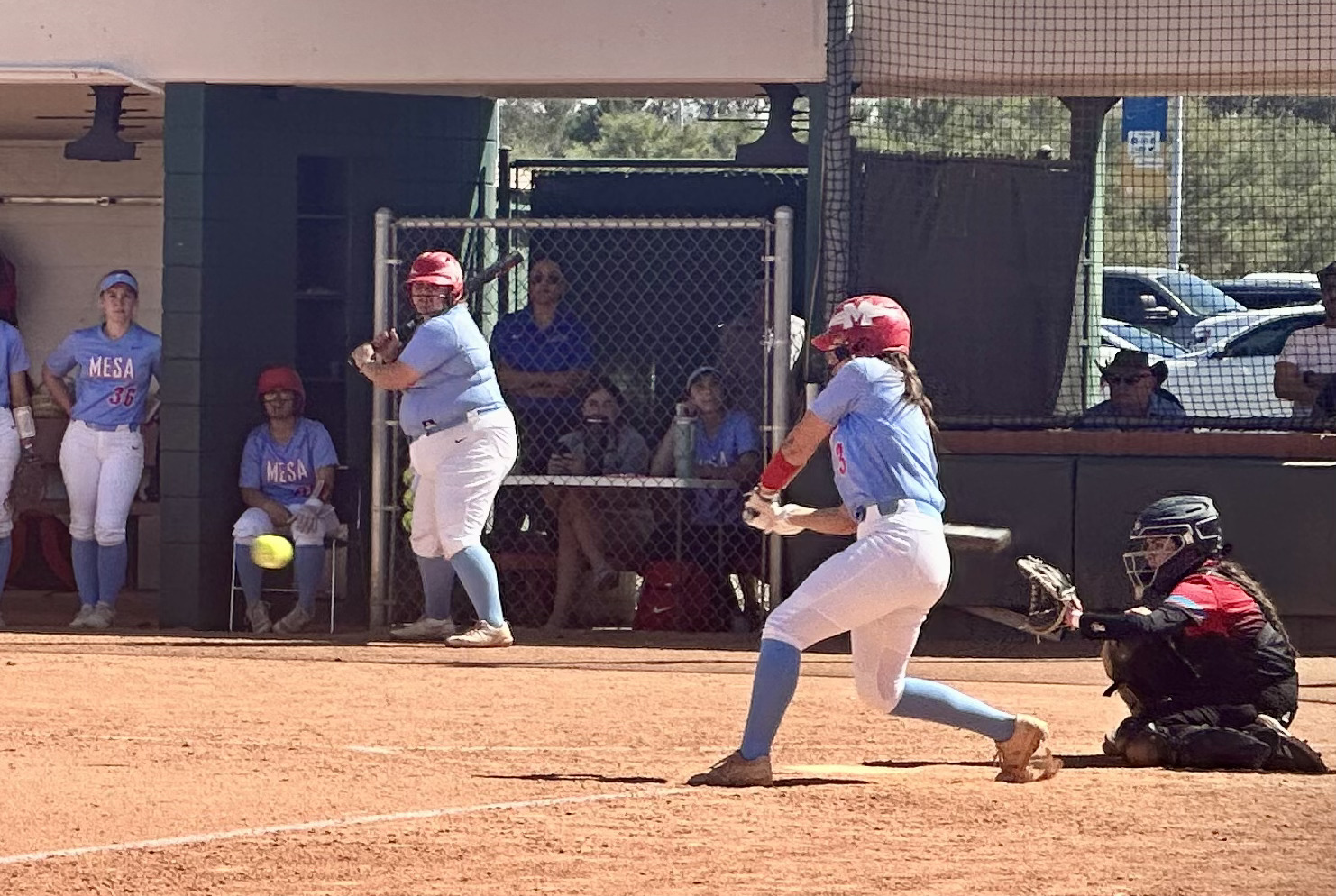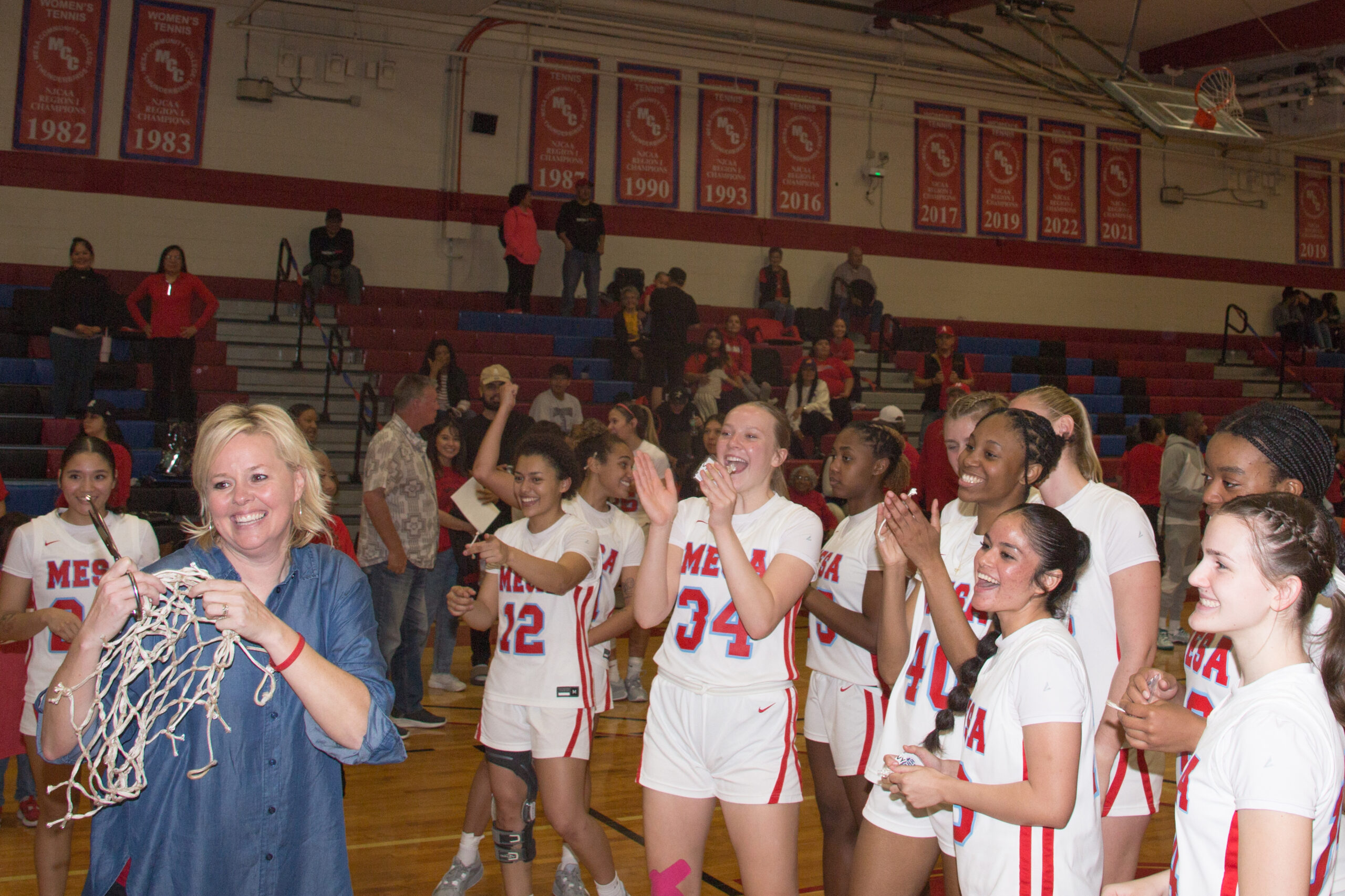More to athletes than athletics
Joseph Starkloff
The college athlete is expected to handle more than just sports, but family and school life as well. For Aisea Vave, the Hawaiian 22-year-old defensive end and linebacker for the MCC football team, the hectic scheduling can be a delicate balancing act.
“(It’s tough) finding time throughout the day to sit down and study for a specific class. All the classes that I have are pretty much core classes. Usually you schedule that for one semester each . It’s kind of clustered,” he said.
Vave stated that the strain of finding time for the several different facets of life can begin to pile up.
“(The stress) gets to me every day. Every day when I wake up (after) my alarm goes off (and) it’s like, ‘ah – another day.’ I don’t mind the work, (but) it’s just so much at one time. The hardest thing is getting up,” he said.
Vave has started his days at 6:30 a.m. and ended them at 8:30 p.m. since joining the team. He stated that his efforts are engineered by his focus on the future.
“I love playing the game of football . but the big picture is getting your education and getting ready for not only what comes after football, but (taking care of) your family on a reasonable income through your education. To me that’s part of the most important thing,” Vave said.
Garrett Graves, a freshman offensive linesman and Peoria native, stated relations are the toughest to make time for.
“The hardest thing is family. It should be number one but it’s the hardest thing to fit in,” he said.
Cindy Jones and Emily Blahak, captains of the MCC volleyball team, stated that stress can come in various forms and for diverse reasons.
“My stress definitely comes around when I have exams. Just trying to cram because I didn’t have enough study time because of practices, and then when I do have time, I just don’t want to because I’m tired,” Blahak said.
Continued deterioration to the body from physical activity has heightened and accelerated tension levels for Jones.
“I don’t deal with stress very well. So, my stress can get pretty high at times. I think a lot of my stress relates to a lot of injuries that happen to me in sports too. I don’t take the time to rest and heal and get enough sleep,” she said.
Blahak stated that she, “hang(s) out with (her) boyfriend and watch a movie (or) hangs out with my sister or family,” to relax.
Blahak, an occupational therapy major, also expressed the confliction her love of volleyball creates for other areas of her life.
“(I) definitely would rather come out and play volleyball or a sport than sit at home or at school and study,” she said.
Jones has learned that keeping organized helps reduce the tension that accompanies college athletics.
“What helps is to honestly write down everything hour to hour, when you’re in class, when you’re in volleyball. Set aside time for school specifically, and avoid trying to change that at all,” she said.
Both Blahak and Jones elucidated that while school was their main focus, it suffered the most due to their other commitments.









